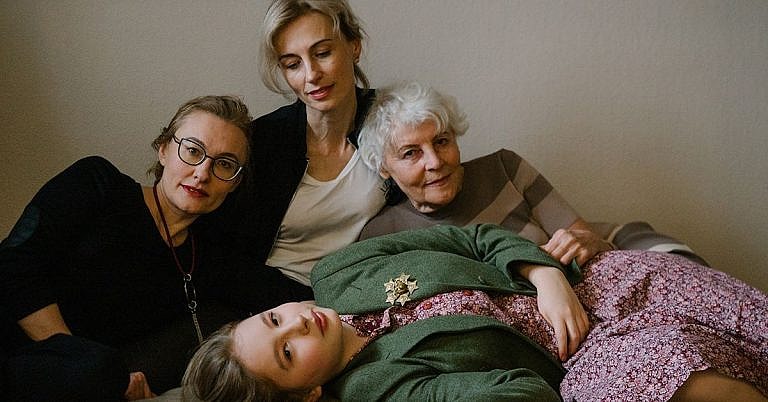What is Pancreatic Cancer?
[trp_language language=”en_US”]
Pancreatic cancer
Pancreatic cancer is cancer arising from the pancreas, a digestive organ located in the upper region of the abdomen behind the stomach. This condition tends to affect older adults and people with other medical conditions, especially pancreas conditions. Symptoms are unspecific and often occur late, complicating diagnosis and worsening the outlook after diagnosis. It may lead to unexplained weight loss, loss of appetite, chronic back pain, and pain in the upper abdomen. Diagnosis is made by MRI or CT scans. Treatment involves surgery, chemotherapy, and, sometimes, radiotherapy. People diagnosed in the early stages have a better chance of successful treatment, but this is not common.
Risks
Cancer occurs when abnormal cells being to grow uncontrollably. These cells destroy the normal cells around them and spread through to other parts of the body. Pancreatic cancer involves the pancreas, an organ located in the upper region of the abdomen behind the stomach, which usually produces substances that break down fats and hormones that manage blood sugar. Pancreatic cancer affects mainly people between the ages of 50 and 80 and becomes more common with age. People who smoke, drink alcohol regularly, and are obese are at higher risk of developing pancreatic cancer. People who have another pancreas condition, such as diabetes, long-term inflammation (pancreatitis), or pancreatic cysts, also tend to develop pancreas cancer more commonly. In some cases, pancreas cancer tends to run in families. Some genes and specific hereditary conditions increase the risk of developing pancreatic cancer, such as Peutz-Jeghers syndrome.
Symptoms
There are often no symptoms in the early stages of pancreatic cancer. The most common symptoms of pancreas cancer include abdominal pain, which spreads to the back, unexplained weight loss, and yellowing skin and eyes. Other symptoms commonly include nausea, loss of appetite, and constipation. Many people find that their stools change color or consistency and appear paler and greasier than previously. Rarer symptoms include blood sugar problems and recurrent blood clots in the veins.
Diagnosis
Diagnosis is based on the symptoms and a physical examination of the skin and abdomen, which may reveal yellowing of the skin and an enlarged gallbladder. Some people are diagnosed during investigation for a cause of changes in their blood sugar levels. An ultrasound, CT scan, or MRI scan of the abdomen is done to confirm the diagnosis, and a small sample of the pancreas (a biopsy) will be taken and investigated for cancer.
Treatment
Treatment depends on the size, specific type of cancer, and whether the cancer has spread at the time of diagnosis. These factors are used to determine the stage of cancer. The treatment involves surgery, chemotherapy, radiotherapy, or most commonly, a combination of these. The treating doctor can give the best advice in individual cases. Emotional counseling or joining a support group may also be helpful. People who have pancreatic cancer that cannot be cured may receive treatments to improve their symptoms and quality of life.
Prevention
Reducing alcohol intake and giving up smoking can help to reduce the risk of developing pancreas cancer. Maintaining good health, including maintaining a healthy weight and managing other health problems, such as diabetes, may also be helpful.
Other names for pancreatic cancer
- Malignant neoplasm of pancreas
[/trp_language]
[trp_language language=”ar”][wp_show_posts id=”6529″][/trp_language]
[trp_language language=”fr_FR”][wp_show_posts id=”6527″][/trp_language]
**What is Pancreatic Cancer?**
**Q: What is pancreatic cancer?**
**A:** Pancreatic cancer is a malignant tumor that forms in the tissues of the pancreas, an organ located behind the stomach. It is a highly aggressive and difficult-to-treat type of cancer.
**Q: What are the risk factors for pancreatic cancer?**
**A:** Risk factors for pancreatic cancer include:
* **Age:** It is more common in older adults, typically over 60.
* **Smoking:** Smoking cigarettes significantly increases the risk.
* **Obesity:** Being overweight or obese can increase the chances of developing pancreatic cancer.
* **Diabetes:** People with diabetes are at an increased risk.
* **Pancreatitis:** A history of chronic pancreatitis can повысить риск.
* **Family history:** The presence of a family member with pancreatic cancer increases the risk.
* **Genetic mutations:** Inherited genetic mutations, such as BRCA1 or BRCA2, can повысить риск.
**Q: What are the symptoms of pancreatic cancer?**
**A:** In the early stages, pancreatic cancer often has no noticeable symptoms. As the tumor grows, it can lead to symptoms such as:
* **Abdominal or back pain**
* **Jaundice (yellowing of the skin or eyes)**
* **Vague digestive problems**
* **Weight loss**
* **Loss of appetite**
* **Blood clots**
* **Fatigue**
**Q: How is pancreatic cancer diagnosed?**
**A:** Pancreatic cancer is diagnosed through a combination of diagnostic tests, including:
* **Imaging tests:** CT scans or MRIs can detect tumors or abnormalities.
* **Blood tests:** Blood tests can check for tumor markers or elevated bilirubin levels.
* **Biopsy:** A sample of tissue from the pancreas is removed and examined under a microscope.
**Q: How is pancreatic cancer treated?**
**A:** The treatment for pancreatic cancer depends on factors such as the stage and location of the tumor, as well as the patient’s overall health. Treatment options may include:
* **Surgery:** To remove the tumor and surrounding tissue, if possible.
* **Chemotherapy:** Drugs to shrink the tumor and kill cancer cells.
* **Radiation therapy:** High-energy beams to kill cancer cells.
* **Targeted therapy:** Drugs that block specific molecules involved in tumor growth.
* **Immunotherapy:** Medications that boost the immune system to fight cancer cells.
**Q: What is the prognosis for pancreatic cancer?**
**A:** The prognosis for pancreatic cancer can vary depending on individual factors and the stage of diagnosis. It is typically a very aggressive and challenging type of cancer to treat.
**Q: How can I prevent pancreatic cancer?**
**A:** There is no surefire way to prevent pancreatic cancer, but taking the following steps can help reduce the risk:
* **Quit smoking:** Smoking is a major risk factor.
* **Maintain a healthy weight:** Obesity increases the risk.
* **Control diabetes:** Managing blood sugar levels can reduce the risk.
* **Eat a healthy diet:** A diet rich in fruits, vegetables, and whole grains may be beneficial.
* **Reduce alcohol consumption:** Heavy alcohol use can increase the risk.
**Additional Information:**
Pancreatic cancer is a serious and deadly disease, but advancements in research and treatment have led to improvements in survival rates. Early detection is crucial, as the chances of successful treatment are significantly lower in advanced stages of the cancer. Regular screenings for those at high risk may be recommended. If you experience any persistent or concerning symptoms, it is vital to consult your healthcare provider promptly for further evaluation.




Pancreatic cancer is a type of cancer that starts in the pancreas. It is one of the most aggressive types of cancer, and it is often difficult to diagnose and treat early on.